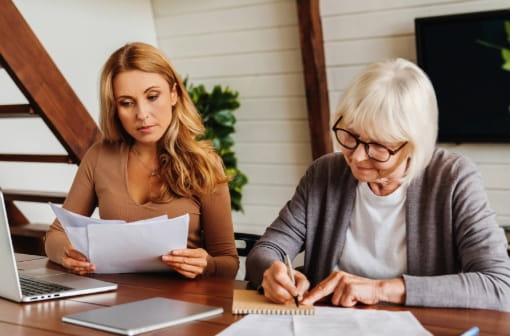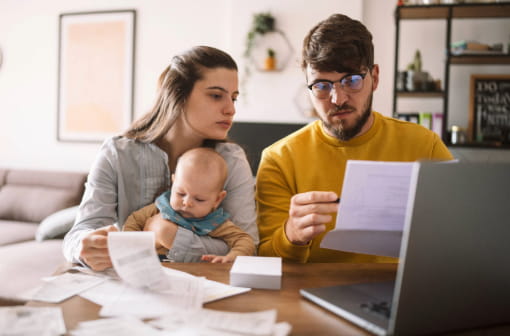“I see saving as investing in yourself and your future. Think about how confident and financially strong you’ll feel once you have an emergency fund.”—Jodie.
Key points
- Having an emergency fund will give you some financial peace of mind should something unfortunate happen.
- Tracking your expenses over a period of time should give you a clearer indication of how much you might need to save.
- In all instances, an emergency should be unexpected, and a “need”, not a “want”.
Life can throw all sorts of curve balls your way, but having an emergency pool of funds gives you peace of mind if something unfortunate were to happen, such as losing your job or getting sick.
While emergency funds, or rainy-day accounts, have been growing in popularity over the last few years, the financial impact of COVID-19 and lockdown has meant they have now become more relevant than ever. Here’s what you need to know about emergency funds.

What’s the “right” amount for an emergency fund?
If you’ve decided to create an emergency fund, your first question will almost certainly be: “But how much do I actually need?”
“Most people need at least three month’s income in an emergency fund,” says Australian Unity’s acting Head of Credit and Risk, Mi-Lin Finnie.
“If you’re single, the amount might be between $2,000 to $6,000 a month. Families may need between $12,000 to $15,000, depending on their living expenses and the size of their mortgage,” she adds.
Tracking your expenses over a period of time should give you a clearer indication of your lifestyle, and what you might need to save to maintain it at a decent level if an unexpected event such as job loss or illness struck.
Income protection insurance also plays a part in a household’s financial support system, says Mi-Lin. But this should sit alongside the emergency fund.
“Depending on your policy’s terms, payments from a claim on an income protection policy won’t start for between four weeks and three months. So you need an amount set aside to live on before your insurance payout starts—and that’s assuming it’s approved. Also remember income protection only covers you for up to 75 percent of what you earn,” she adds.
Once you know how much you’ll need, it’s time to start saving. If you’re not lucky enough to have the amount you need already (and few of us are!), it’s time to start building a realistic budget that allows you to start putting money aside for your emergency fund. If you’re someone that struggles to save for big goals, consider setting mini goals along the way too—say, by aiming for $1000, then $2000 and so on.
Where should I stash my emergency fund savings?
The next thing to think about is where to put those funds.
If you have a mortgage, your offset account or redraw facility may be an appropriate place to hold this money. It may be more difficult to access your funds than in an everyday savings account and, importantly, your money can work harder by reducing the interest you pay on your mortgage.
Otherwise, the best option may be to hold the money in a designated high-interest savings account. This approach will allow you to earn interest on your nest egg, and you can quickly access the funds in the case of an emergency.
And the one place you shouldn’t stash your savings? The stock market. Shares and managed funds have their place in any investment portfolio, but market volatility means they require a longer-term approach.

When should I use my emergency fund?
What constitutes a financial “emergency” will be different for different people—although some are more obvious than others.
For almost everyone, losing your job is a clear reason to dip into your fund. The money can be used to meet basic living expenses such as mortgage payments or rent, food, transport and bills until you get back on your feet.
Other “emergencies” will be less clear-cut, and will depend on your financial situation or priorities. For some people, it may be car repairs, or even replacing your car altogether. For others, it may be having dental work or a helpful—but not medically necessary—health procedure.
In all instances, though, an emergency should be unexpected, and a “need”, not a “want”. There’s no point having an emergency fund if you spend it indiscriminately on holidays, handbags or spur-of-the moment entertainment. Set aside another slush fund for these purchases—a budget or structuring your bank accounts can help.
“They are called emergency funds for a reason. Save up to get that new television. Don’t dip into your emergency fund just because you want something,” Mi-Lin advises.
And if you’ve already used your fund for something that wasn’t really an emergency? Says Mi-Lin: “Acknowledge that you’ve dipped into your emergency funds when you probably didn't need to. Talk to someone—they may have some great ideas you haven’t thought to cover the unexpected expense. Don't beat yourself up and don't give up on the process of an emergency fund, just because you make one mistake.”
Firing up your savings to invest in your future
Jodie and her husband are textbook examples of how to create a sizeable emergency fund. They built up a savings pool of $10,000 in six months by following a strict budget, saving more than 30 percent of their income during this time.
“For us, putting aside this money was part of a bigger plan shaped by the FIRE (financial independence, retire early) philosophy,” says Jodie. “So far, we haven't needed to dip into the money. But it helps knowing we have cash there if we need it,” she says.”
Jodie’s key tip for saving for an emergency fund? “Track your spending so you know exactly where your money is going,” she says. “That way you can make empowered decisions about how you want to spend or save your money.”
For Jodie, it was also about shifting her mindset—she doesn’t think of her savings as money she can spend. “I see saving as investing in yourself and your future. Think about how confident and financially strong you’ll feel once you have an emergency fund. You need to realise that’s what you’re choosing every time you make a frugal decision.”
Of course, everyone’s situation is different and what constitutes an emergency for one person is normal daily life for someone else. The biggest benefit of having an emergency fund? The sense of relief you’ll feel knowing you have money in the bank to cover life’s curveballs.
Disclaimer: Information provided in this article is of a general nature. Australian Unity accepts no responsibility for the accuracy of any of the opinions, advice, representations or information contained in this publication. Readers should rely on their own advice and enquiries in making decisions affecting their own health, wellbeing or interest. Interviewee titles and employer are cited as at the time of interview and may have changed since publication.


